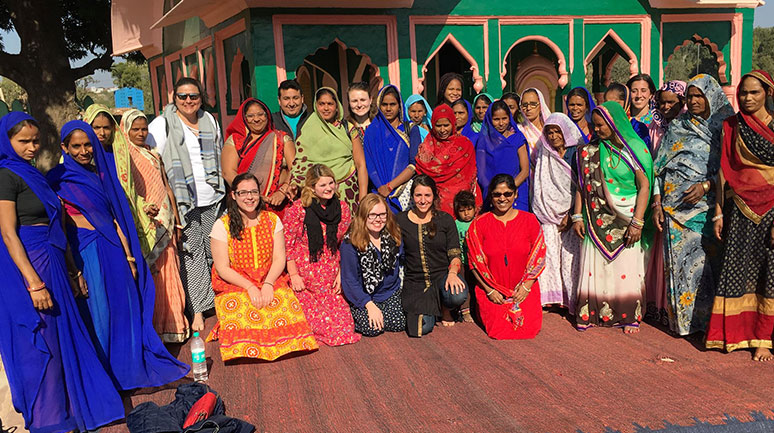My Journey with PRADAN Continues!


Once a PRADAN-ite always a PRADAN-ite…seemingly, one can take a PRADAN-ite out of PRADAN but not PRADAN out of a PRADAN-ite…the ethos, philosophy, mission and values remain forever embedded in the psyche
I often say that PRADAN made me the person I am today. My journey with PRADAN has been of enduring value. Although I was born and raised in a small town, my familiarity with rural India was very limited. Let alone knowing about rural development, I was not even aware of the basic essence of a village and the challenges that poor communities face in rural India. My journey with PRADAN has shaped my world view, both personally and professionally. Besides the commitment and approach PRADAN has to rural development, the kind of grooming PRADAN professionals receive is incomparable. PRADAN guides us to develop the noesis and skill-set to work with the community, not for the community. Although there are many challenges and roadblocks in development, my experience with PRADAN has been extremely valuable to me, and my journey with PRADAN still continues as an educator and researcher.
Sitting on the floor or on a mat with the group members, wearing clothes that the rural communities can relate to, drinking tea or water they may offer in their cups, etc., may seem to be trivial; however, such practices help disseminate signals that can potentially alter the structural status quo of social hierarchy
Sitting on the floor or on a mat with the group members, wearing clothes that the rural communities can relate to, drinking tea or water they may offer in their cups, etc., may seem to be trivial; however, such practices help disseminate signals that can potentially alter the structural status quo of social hierarchy
My academic training, though, had offered me some theoretical information of community development that nurtured my inclination for rural development. In due course, I was fortunate enough to be selected for PRADAN’s Development Apprentice (DA) program. This is when my journey with PRADAN began. I have a vivid memory of my first day in PRADAN in the remote village of Ramgarh, Alwar, Rajasthan, where I attended, for the first time, a microfinance SHG (self-help group) meeting with a senior professional. The SHG members were disbursing money the bank had loaned among themselves in that meeting. When I found them taking a little longer (than presumably I would have taken) to count the rupees, I almost offered my help; my colleague stopped me from doing so. I could not comprehend why I had been stopped. Later on, I was told that our role was to encourage the group to be self-dependent. In retrospect, I realize how big that lesson was. I could not have identified the real distinction between being a facilitator and being a helper without the field training that PRADAN offered.
Sitting on the floor or on a mat with the group members, wearing clothes that the rural communities can relate to, drinking tea or water they may offer in their cups, etc., may seem to be trivial; however, such practices help disseminate signals that can potentially alter the structural status quo of social hierarchy. Hierarchy (based on gender, caste, age or economic status) is often inculcated in our mindsets (through social conditioning) and is usually reflected in our social interactions. Although change in such norm-based behavior does not come easy, modest gestures can help bring change while challenging the status quo. In terms of the approach to rural development, these gestures not only challenge the hierarchical structure but also help professionals come closer to the community. It speaks loudly to the fact that we are there to work with the community on their terms, not do the work for them.
In my early days in PRADAN, I remember addressing my senior colleagues as ‘Sir’, in alignment with my earlier social training and conditioning. My colleague repeatedly told me to call him by his first name. It was difficult to give up on diehard practices. However, eventually I addressed him by his first name without understanding the real significance of it. Later, I attended a PRADAN’s monthly meeting. Because my seniors had helped me develop nonhierarchical professional relationships with them, my DA colleagues and I were able to participate openly in the meeting. We often even confront and critique our seniors in the meeting on various issues. Although, we (DAs) were aware of the fact that the senior professionals would be evaluating us, and our continued employment in PRADAN was, in some measure, contingent upon the grading of our senior professionals, we never felt intimidated. I realized then the real meaning of the non-hierarchical and democratic approach in professional development and how a small practice of calling people by their first name has huge implications in professional growth.
Suparna Soni is an Assistant Professor at the Department of Political Science, Public Administration Division at SUNY Buffalo State. She holds a PhD in Political Science from SUNY University in Buffalo and a Master’s in Public Administration from Cornell University..

